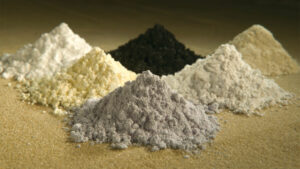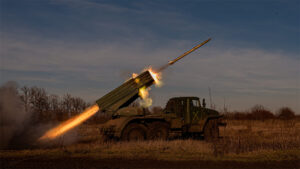Trump has big foreign policy choices to make this week and they both have world changing consequences.
It’s already been a big week for Trump. He just got his first pair of foreign policy crises.
First, the one that he picked.
Chinese President Xi Jinping will arrive tomorrow at Mar-a-Lago for direct talks with President Trump. We will know within a few days just how hostile the Trump administration will be toward all things Chinese. In these talks, The United States — and by extension, Trump — holds most of the cards: a functional anti-Chinse military alliance, absolute naval mastery of the Pacific, a Japan chomping at the bit for a more aggressive anti-Chinese stance, full command over the security of the global trading system upon which China depends, etc.
It isn’t that China cannot cause the Americans pain, just that any method of doing so obviously invites the Americans to counter in-kind at a higher order of magnitude. Xi is flatly coming seeking a “deal” and the talks are in Florida — rather than Washington or Beijing — so that Xi need not worry about American journalists or Chinese politicos hearing the discussions and potentially casting Xi as being as weak in the talks as he fully realizes he is. So either we’ll get a deal or this is the beginning of the end of the Chinese system in its current form. Personally, I’m popping some corn.
Then there’s the crisis that Trump most certainly did not pick.
Earlier this week the Syrians broke out some of their chemical weapons stocks again and used them on one of the more stubborn rebel positions in the country’s northern Idlib province. Russia quickly provided a modicum of diplomatic cover for its Syrian ally, asserting that a Syrian airstrike merely struck a rebel chemical weapons factory, and so scattered someone else’s chemical weapons.
For those of you who like to obsess about technicalities, chemical weapons depend upon being aerosolized for dispersion. It isn’t that the liquid material isn’t toxic — it’s totally toxic! — but a pint of liquid chemical weapon will kill everyone in a room while the same aerosolized amount can kill everyone in several city blocks. Hit a chemical weapons depot with a conventional bomb and you’ll incinerate far more of the material than you’ll disperse, much less aerosolize. The Russians of course know this and fully realize that the statement isn’t just a lie, but a particularly asinine one.
There’s a method to the madness.
The Russian challenge is the same one they used when invading eastern Ukraine: say something so beyond the pale that you are daring the international community to do something. It leaves everyone — Trump included — with needing to follow one of three paths. First, suck it up and do nothing. Second, deploy tens of thousands of troops to engage in a broad scale war against a country backed by a nuclear power that already has combat troops in-theater and risk thermonuclear escalation. Third, start a drone/airstrike campaign with the express purpose of decapitating the Syrian government, up to and including the assassination of Assad himself.
Option 1 makes you look like a wuss, emboldening Russia (not to mention Syria) to use similar tactics in other theaters. Option 2 bogs you down in a winless, bottomless war that makes the Iraq conflict look simple (and that’s assuming that nothing goes horribly wrong). Option 3 gives up on a stable future for Syria and the surrounding region. It would also be public acceptance of assassination, opening up a Pandora’s box of strikes and counter-strikes all over the world by a panoply of powers.
Say what you will about the Russians, they are very good about presenting their rivals with unwinnable choices.
I never expected the alleged Trump-Putin love-fest to amount to anything. Russia’s geopolitical and demographic position is precarious, but Russia’s tool-box is fairly full. Trump has yet to fully familiarize himself with the awesome raft of tools the U.S. president has in foreign affairs, and his demeanor is somewhat… inconsistent. It’s a combustible mix, not to mention that I personally find the idea that the world is big enough for the Trump and Putin egos to co-exist (darkly) amusing.
What really gets my attention is that these two developments happened in the same week. Xi’s trip has been on the docket for awhile now, and timing the use of a chemical munition wouldn’t be all that hard. While I have zero proof, the timing does appear to be trademark Russian: force the White House to pick a crisis — a buffet of unpalatable choices in the Middle East, or a major politico-economic conflict with another power. Either way, it potentially keeps the Trump administration obsessed with conflicts far from Russia’s borders.
Just don’t forget that no matter what Trump picks, the outcomes are going to be far worse for others. An America engaged in a Syrian conflict is one that generates building disasters for Turkey, Israel, Egypt, Saudi Arabia, Iran and Europe. An America engaged in a head-of-state assassination campaign destabilizes entire continents. An America pursuing a Chinese competition wrecks the entire global supply chain system from raw crude to iPhones.
The only way this doesn’t lead to Disorder is if Trump chooses to look like a whimp.







